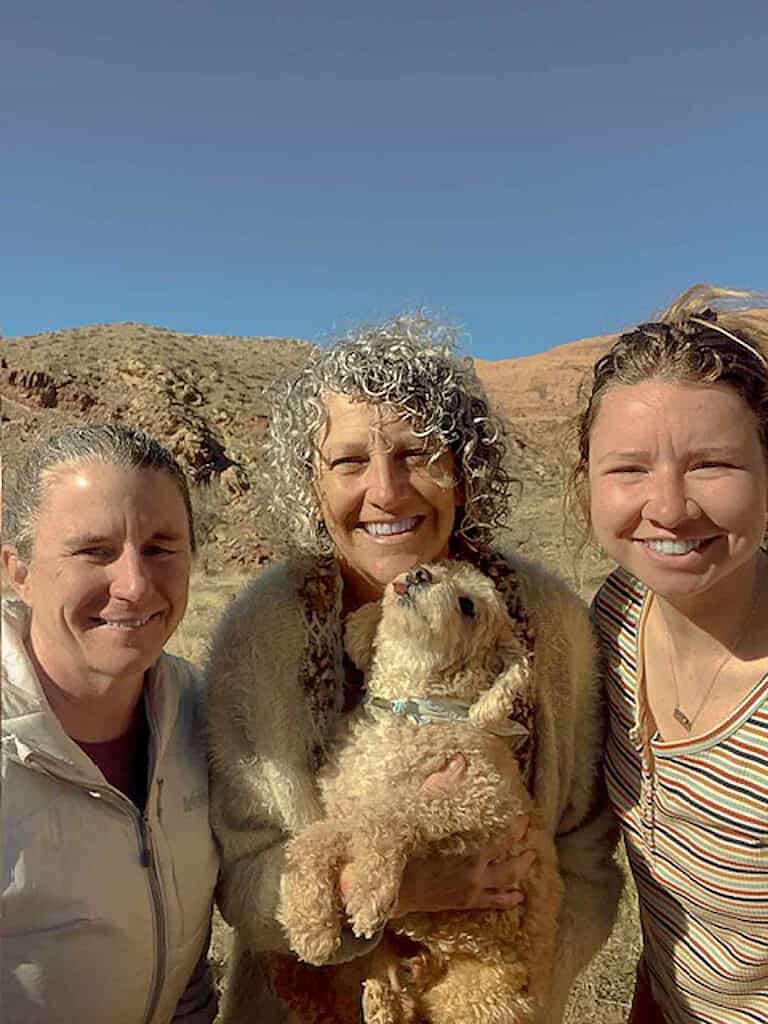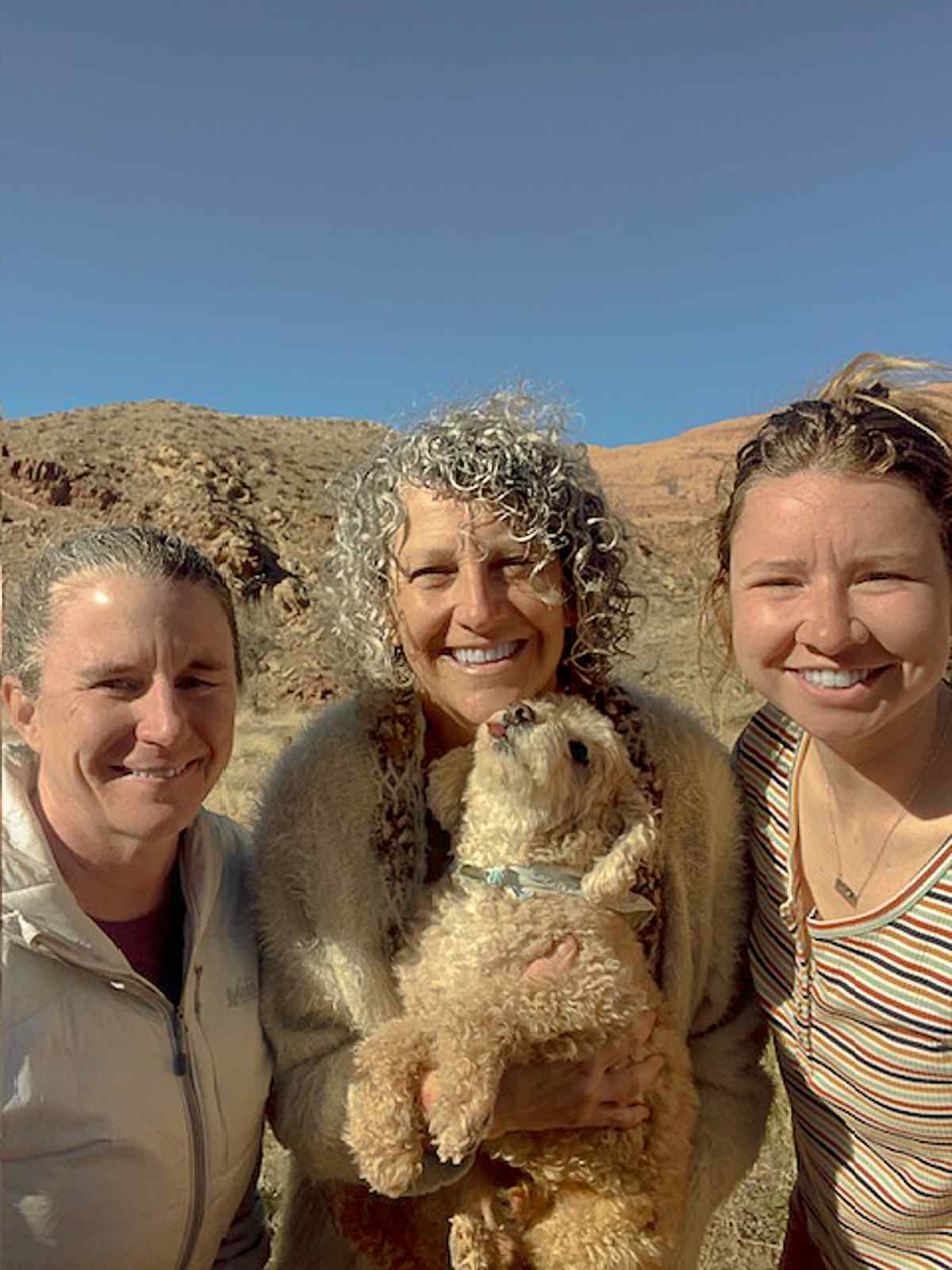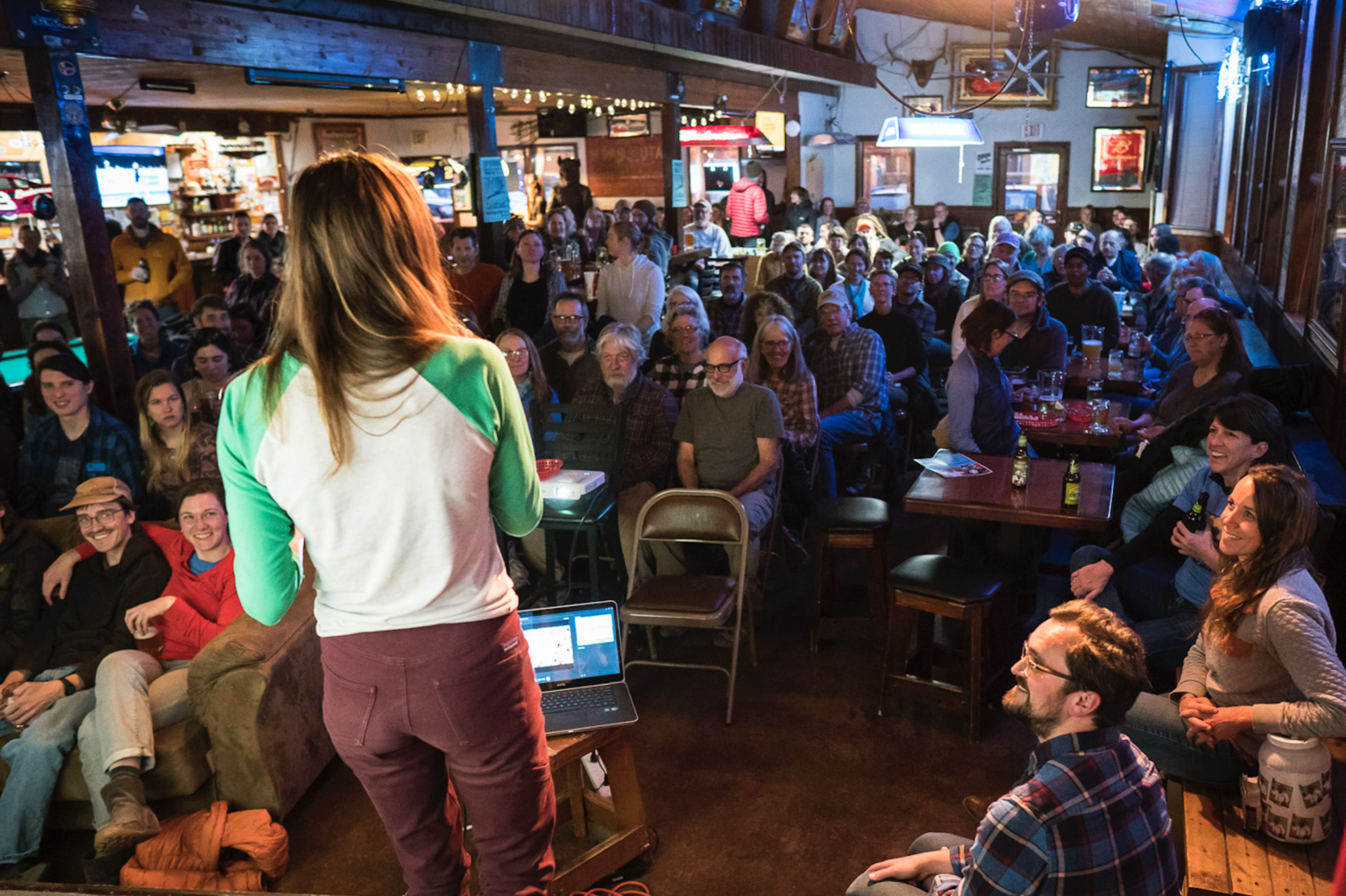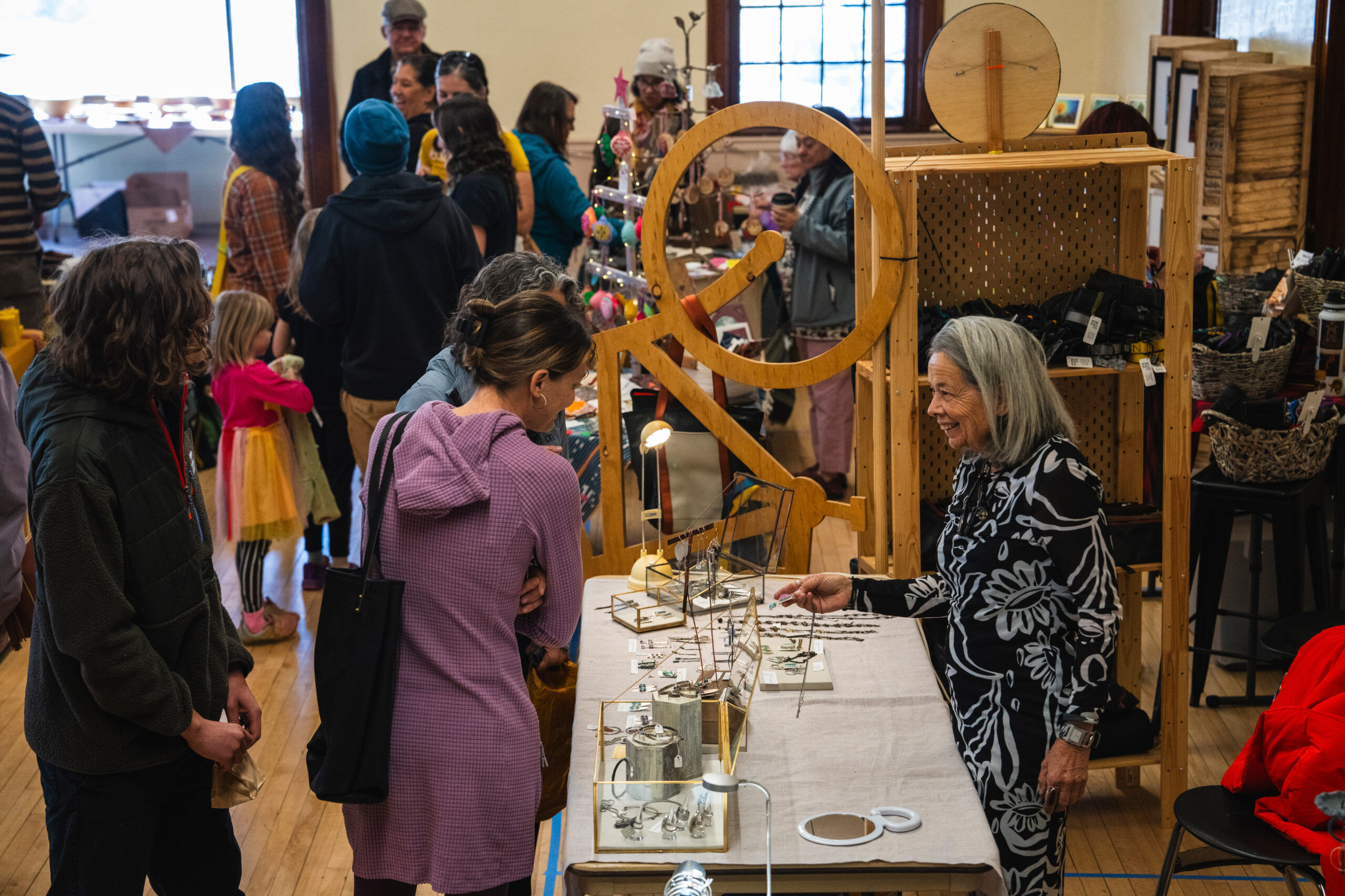Some information may be outdated.
“The industry is squishy on what it means to be a coach, let alone a wellness coach,” Celia Alario summed up, explaining why she and other local health coaches decided to hold a meeting where locals can ask questions of the three certified coaches.
Alario, Laura Kenderes, and Michelle Allard all share one impressive title: they all received certification from the National Board of Health and Wellness Coaching, which brings a standard of excellence to the field. This training prompted them to find each other in Moab.

On Tuesday, March 26, they will host an interactive discussion and panel from 5:30 to 7 p.m. at the Moab Arts Building to answer questions about their field as health coaches with a show-and-tell style event that asks participants: “what does it mean to thrive?”
Moab Sun News caught up with these inspiring health and wellness coaches to explain their philosophies. While all three coaches occupy different niches within the realm of health and wellness coaching, they can all agree: it’s important to listen to the client and ask questions that help them.
MSN: Why did you choose to collaborate and what can people expect from the event?
Kenderes: Naturally from the core of who we are, we want to create an offering for the community. At the event, people can experience more of what health coaching is. It’s an interactive discussion and panel. Then there will be a break-out and people can direct questions to one of the three coaches they choose. It will help people find momentum and clarity in their goals.
Allard: It’s to address the common response to health coaching: “I don’t want to be rude, but what is health coaching? What do you do?”
Alario: The best way to experience health coaching is to show, not just tell. The experience of small-group coaching will hopefully help jumpstart people’s attention to their own well-being. With spring on the way, it’s a good time to reaffirm what it means to thrive.
MSN: What is your definition of health and wellness?
Allard: Health and wellness is individualistic– what it means to me is different from someone else. It’s being in a place where you are the happiest, healthiest version of you. As a health coach, I ask the right questions of what they really do want and what it looks like to them.
Kenderes: Health and wellness means having clear boundaries and support in your life. You are finding your own track and people around you that support you.
Alario: Food, mood, movement and rest are the four pillars of health. Further dimensions of personal health include physical, spiritual, emotional and intellectual. External dimensions include social, community, planet and environment, livelihood. Clients such as caregivers and moms might need to focus inwards. For others, they might have the inner dimensions dialed and need coaching to focus outwardly towards the planet.
MSN: How do you figure out what your clients want and need? What’s your coaching style?
Kenderes: I create a relationship early on that is based on not needing to fix the client. Instead, as coaches, we walk alongside clients. Imagine we are both in a car, yet they are the driver. The coach can help take away “shoulds” and flip it around to show perspectives that allow clients to discover for themselves what they need.
Allard: Creating a judgment-free zone and space where they feel like they can work through their difficulties to find their own realizations. It’s powerful to be able to just let someone talk. It’s enlightening for the client, and they thank you for holding the space for them.
Alario: This field is in contrast to the Western medical system which operates in an expert model– a coach gives advice, prescribes, lectures, diagnoses. Instead, wellness coaching means being present to the client so their own innate wisdom can emerge. Each client might be at a different stage of change, and wherever they are is where you meet them. It’s not that they are accountable to us– we support them in finding ways to be accountable to themselves to reach their goals and improve their health. The language of coaching can include a destination, but it’s so much about the journey.
MSN: What is your favorite tool in your toolbox?
Allard: Open-ended questions instead of yes or no questions. People originally think they want you to tell them what they do, but they don’t. Instead, I throw it back on their plate and ask “what has worked for you in the past?” There’s power in realizing what you need and coming up with ideas on your own. That’s when people are most successful.
Kenderes: An open-ended question is “What does this feel like for you?” Let them think and dig deeper into why they responded the way they did.
Alario: Appreciative inquiry and motivational Inquiry. Strength-based coaching. Ask for a time when they were successful. Imagine a time without some of the constraints you are attempting to overcome. If you were helping a friend with those problems, what would you say to them?
Allard: We are our own worst critics, so pay attention to your own self-talk.
Alario: Questions like, “If you were on top of a mountain, what would you see? Looking back six months from now and you’ve achieved this, what would you say to yourself?” Anything that gets you out of the stuckness of the moment is freeing. Coaching gets clients to use both sides of their brain to get away from the nitty-gritty and activate a more generative process.
MSN: What do you do to stay healthy?
Kenderes: Live in Moab. Remote outdoor sunrise time. I love hiking or biking very early and cold-plunging in the river. It lets me wash away instead of holding on tightly.
Allard: I schedule my calendar so I can take care of myself. I spread my calls out as much as I can so I can go for a walk and really prepare for the next client and be present. I start my day with meditation and get some sort of activity during the day. I refuse to get into a bad head space because of some crazy job. That makes it hard to be there for other people.
Alario: I need to feel like I’m addressing the 4 pillars in my own life. I cultivate a certain level of emotional wellness before I feel ready to help someone. I don’t feel like I have to have all the answers anymore. Instead, I hold space, create a container and listen lovingly. Being healthy is essential to listening to my own intuition and getting out of my own way to allow the best questions to come through for the client, which is better than any given coaching skill from a three-ring binder.
MSN: Final question– what three values guide your coaching?
Alario: Vitality, Joy, Authentic Expression.
Kenderes: Sustainable growth, Joy, and Community.
Allard: Creativity, Happiness, Gratitude.
Kenderes has a background in guiding in canyons and rivers, and as a nutrition coach and chef for a biking team. She now works with the Wellness Collective offering classes for the community.
Allard worked for eight years with the Public Employees Health Program, the health insurance program from the state of Utah, advising people with diabetes. Her philosophy is that everyone is the expert on their own minds.
She now works for Hinge Health, helping people move to reduce joint pain.
Alario is a communications coach in the social change field, helping public speakers find their authentic voice to deliver their message. As a wellness coach, she trusts that each person is their own best expert.
Learn more about health coaching on March 26 from 5:30 to 7p.m. at the Moab Arts building
Appreciate the coverage? Help keep local news alive.
Chip in to support the Moab Sun News.





